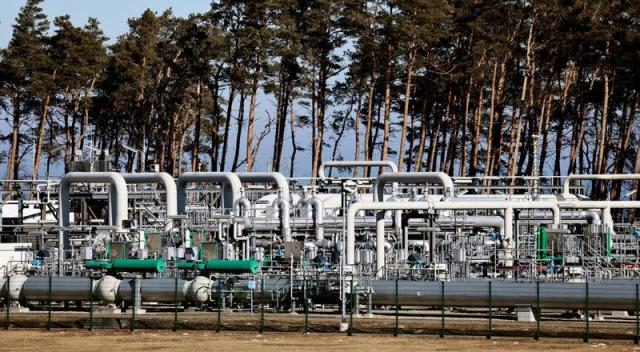On Monday, Europe’s biggest Russian gas buyers scrambled for alternative fuel stocks.
They could burn more coal to cope with reduced gas flows from Russia, threatening a winter energy crisis if reserves aren’t replenished.
Germany, Italy, Austria and the Netherlands have all signaled that coal-fired power plants could help the continent through a situation that has pushed up gas prices and made it even harder for politicians to fight inflation.
On Monday, the Dutch government said it would lift the production cap on coal-fired power plants and activate the first phase of an energy contingency plan.
Denmark also initiated the first step of an emergency gas plan due to the uncertainty of Russian supplies.
Italy was close to declaring an energy alert after Oil Company Eni said Russia’s Gazprom had told it would receive only part of its gas supply request on Monday.
Germany, which has also seen lower Russian flows, has announced its latest plan to increase gas storage capacity and said it would restart the coal-fired power plants it was planning to phase out.
“It’s painful, but reducing gas consumption is an absolute necessity in this situation,” said Economy Minister Robert Habeck, a Green Party member, pushing for a faster phase-out of coal, which produces more greenhouse gases.
He said, “But if we don’t do that, then we risk the stores will not be full enough for the winter season at the end of the year. And then we can be politically blackmailed”.
Russia on Monday reiterated its earlier criticism that Europe was to blame after the West imposed sanctions in response to Moscow’s invasion of Ukraine, a gas transit route to Europe and a major wheat exporter.
The previous month’s Dutch gas contract, the European benchmark, was trading at around 124 euros ($130) per megawatt-hour (MWh) on Monday, below this year’s peak of 335 euros but still more than 300% above the level of a year ago.


